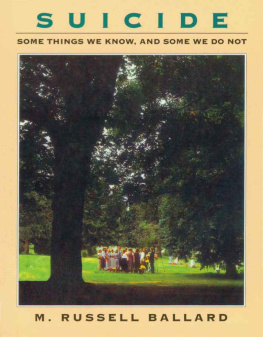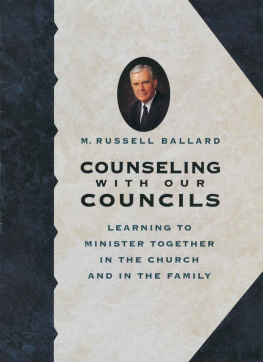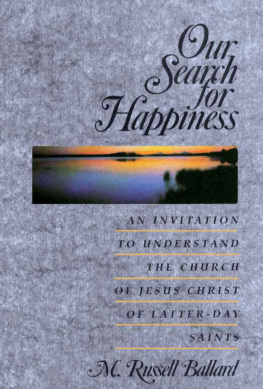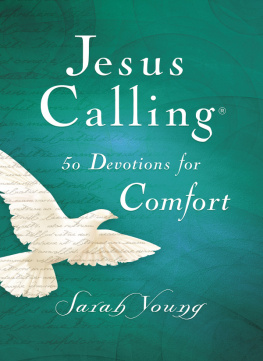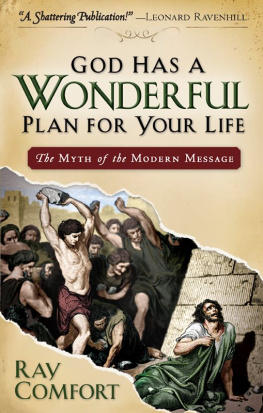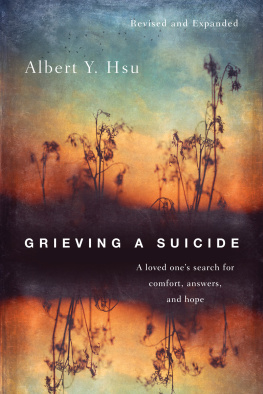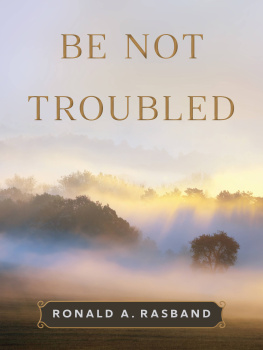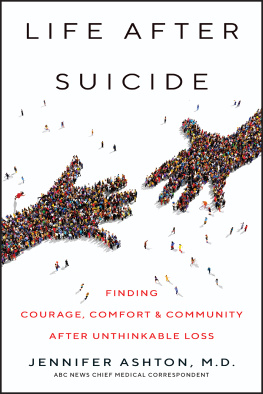Suicide
Some Things We Know, and Some We Do Not
M. Russell Ballard
1993 M. Russell Ballard.
All rights reserved. No part of this book may be reproduced in any form or by any means without permission in writing from the publisher, Deseret Book Company, P.O. Box 30178, Salt Lake City Utah 30178. This work is not an official publication of The Church of Jesus Christ of Latter-day Saints. The views expressed herein are the responsibility of the author and do not necessarily represent the position of the Church or of Deseret Book. Deseret Book is a registered trademark of Deseret Book Company.
Suicide: Some Things We Know, and Some We Do Not
I recall attending the funeral of an older man who had unfortunately taken his life. His wife had died years earlier, and as his health declined, he felt he had less and less of a reason to live. Gradually he found himself confined to the four walls of his home. A semi-invalid, he was unable to visit friends or go grocery shopping. His food was delivered to his door. He missed going to church, missed regular fellowship with other members of his priesthood quorum.
Although he wasn't able to get about, the doctor assured him he could live many more years. "You neither smoke nor drink," the doctor said. "You've taken good care of yourself. Other than the fact that you're confined to your house and wheelchair, I give you a clean bill of health."
While the doctor was trying to be encouraging, the man felt discouraged. This good brother felt his earthly life no longer had any value, and he wanted to join his beloved wife in the spirit world. The more he thought about death, the more appealing it became to him. He had been a faithful member of the Church all his life; he had served two missions and had been diligent in several leadership positions at different times in his life. But as he thought about the release he would find through death, his mind became muddled. He unwisely concluded that taking his own life would solve his problems.
I visited with the family after the funeral. As you might expect, they were greatly disturbed by what their father and grandfather had done. Their feelings ranged from grief to anger to guilt.
"I should have noticed how depressed he was," one daughter said. "Then I could have helped him and prevented this."
One son spoke rather harshly. "I never thought my father was a stupid man. But what do you say to this? If he loved us, he would never have done such a thing!"
A comment by the youngest son captured the despair they all felt: "There is no hope for Dad now, is there?" he said. It was more a statement than a question. "All the good things he did throughout his life don't matter anymore. Now that he's taken his life, he will be in the telestial kingdom throughout eternity." Then he wept.
The feelings expressed then by those family members are commonly felt by Latter-day Saints trying to cope with the suicide of a loved one or associate. The anguish and uncertainty they experience are extremely painful and difficult.
Sadly, the problem touches many lives. Every year in the United States alone half a million people try to take their own lives. Fifty thousand of those succeed. Unfortunately, the problem also exists among members of the Church. Consequently, the Church has provided counsel to priesthood leaders in the form of an LDS Social Services booklet entitled Identification and Prevention of Suicidal Behavior (stock no. PGSC6178).
The act of taking one's life is truly a tragedy because this single act leaves so many victims: first the one who dies, then the dozens of othersfamily and friendswho are left behind, some to face years of deep pain and confusion. The living victims struggle, often desperately, with difficult emotions. In addition to the feelings of grief, anger, guilt, and rejection which the victims in such a family feel, Latter-day Saints carry an additional burden. The purpose of our mortal lives, we know, is to prove ourselves, to eventually return to live in the celestial kingdom. One who commits suicide closes the door on all that, some have thought, consigning himself to the telestial kingdom.
Or does he? What is the truth regarding suicide?
The prophets have taught us some important principles about suicide, but it is possible that many of us have misunderstood. Let's review some of the fundamental teachings of the prophets on this matter.
First, President George Q. Cannon of the First Presidency made a clear statement about the seriousness of suicide when he said: "Man did not create himself. He did not furnish his spirit with a human dwelling place. It is God who created man, both body and spirit. Man has no right, therefore, to destroy that which he had no agency in creating. They who do so are guilty of murder, self-murder it is true; but they are no more justified in killing themselves than they are in killing others. What difference of punishment there is for the two crimes, I do not know; but it is clear that no one can destroy so precious a gift as that of life without incurring a severe penalty." (Gospel Truth, 2 vols., Salt Lake City: Deseret Book Company, 1974, 1:30; italics added.)
President Spencer W. Kimball made an equally strong statement in 1976. "It is a terrible criminal act for a person to go out and shorten his life by suicide," he said. (Teachings of Spencer W. Kimball, ed. Edward L. Kimball, Salt Lake City: Bookcraft, 1982, p. 187.)
Those statements on their own might seem to leave no room for hope. However, although they stress the seriousness of suicide, the statements do not mention the final destination of those who take their own lives.
The late Elder Bruce R. McConkie, formerly of the Quorum of the Twelve, expressed what many Church leaders have taught: "Suicide consists in the voluntary and intentional taking of one's own life, particularly where the person involved is accountable and has a sound mind.... Persons subject to great stresses may lose control of themselves and become mentally clouded to the point that they are no longer accountable for their acts. Such are not to be condemned for taking their own lives. It should also be remembered that judgment is the Lord's; he knows the thoughts, intents, and abilities of men; and he in his infinite wisdom will make all things right in due course." (Mormon Doctrine, 2d ed., Salt Lake City: Bookcraft, 1966, p. 771; some italics added.)
Not long ago I was asked to speak at the funeral of a dear friend who had committed suicide. Knowing the person and the circumstances as I did, and researching the doctrine on the subject, I had some difficult moments in preparing for my remarks. I know that any fully rational person who contemplates suicide must realize what a terribly selfish act this is. Peace came to me only when I recognized that only the Lord could administer fair judgment. He alone had all the facts, and only He would know the intent of the heart of my friend. I was reconciled with the idea that a lifetime of goodness and service to others must surely be considered by the Lord in judging the life of a person. In the Lord's mercy, perhaps the words of Alma will apply:
"The plan of restoration is requisite with the justice of God; for it is requisite that all things should be restored to their proper order. Behold, it is requisite and just, according to the power and resurrection of Christ, that the soul of man should be restored to its body, and that every part of the body should be restored to itself.

